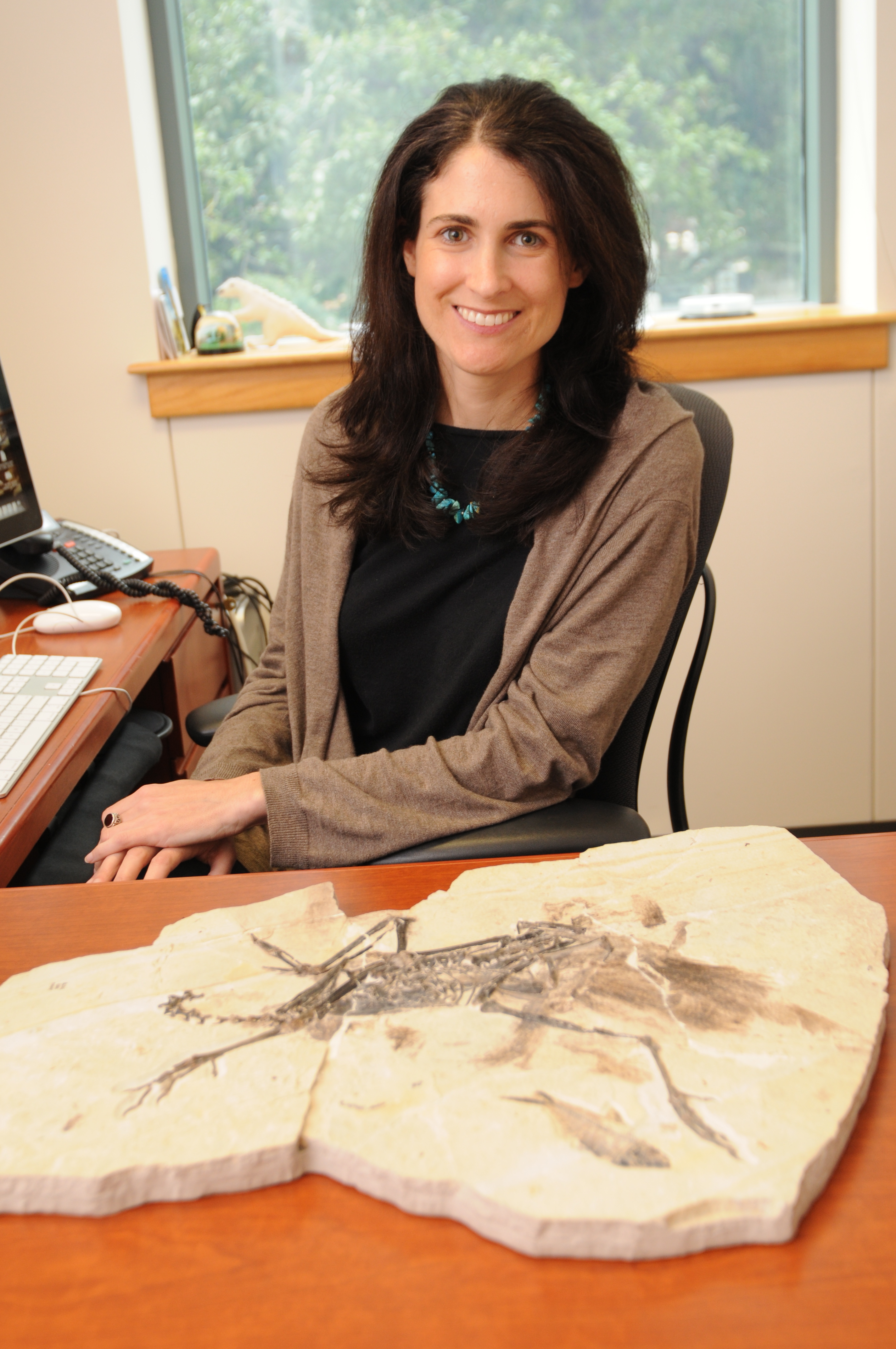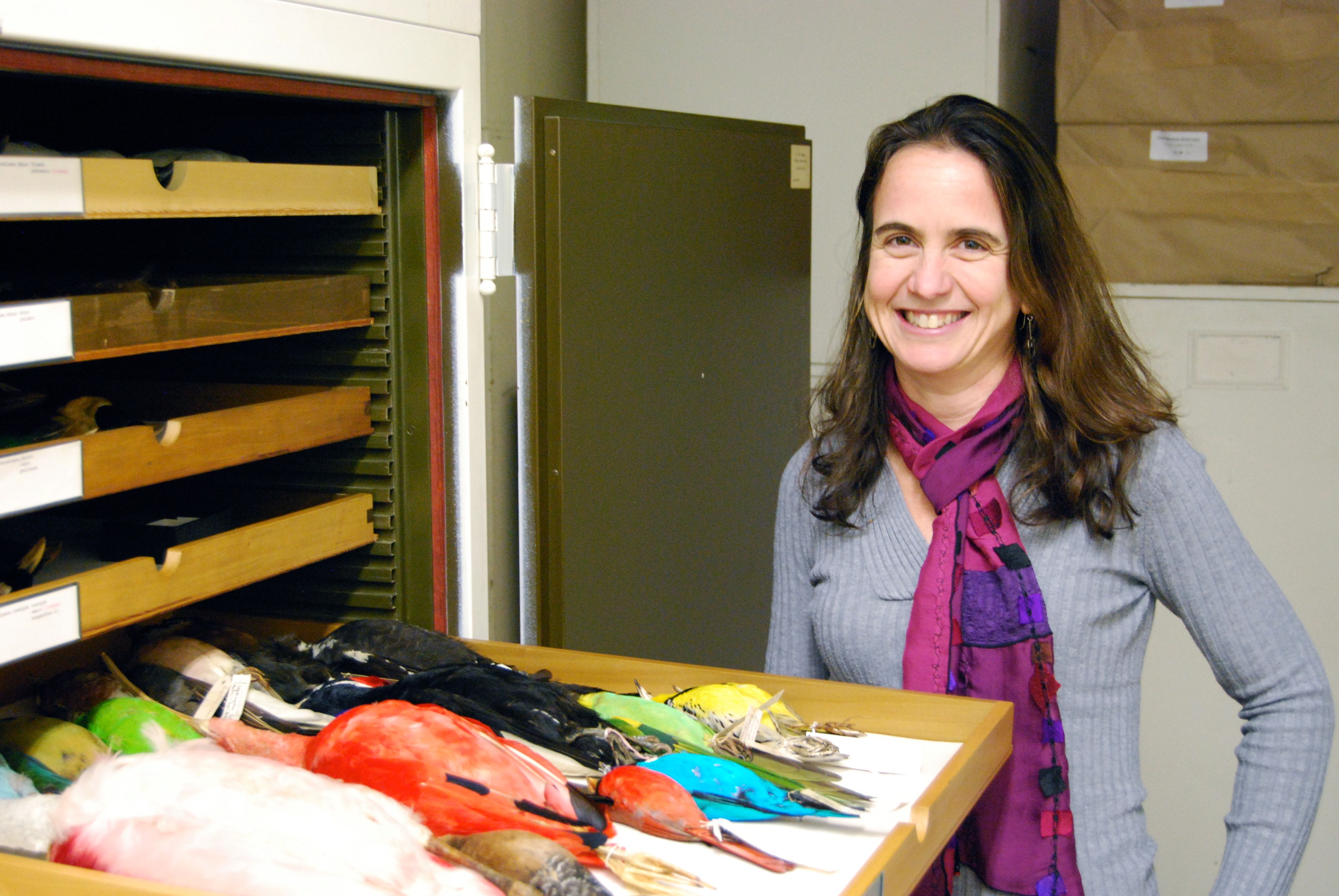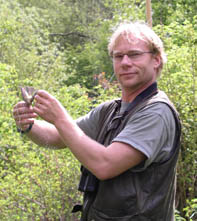
Julia Clarke
Julia Clarke is an Associate Professor and John A. Wilson Fellow in Vertebrate Paleontology in the Jackson School of Geosciences at the University of Texas. Her research focuses on using phylogenetic methods and diverse data types to gain insight into the evolution of birds, avian flight and the co-option of the flight stroke for underwater diving. She is particularly interested in understanding shared patterns and potential causal factors in the evolution of living bird lineages. She and her students are a gathering new data to inform how avian diversity and distributions have changed across their deep histories. Their international collaborations and fieldwork (e.g., in Peru, New Zealand, Antarctica, Mongolia and China) are providing exciting new fossil data to approach these questions.

Catherine Graham
Catherine Graham is an Associate Professor in the Department of Ecology and Evolution at the University of Stony Brook. She and her students focus on landscape and behavioral ecology, with an emphasis on how human-altered landscapes affect ecological processes; and bioinformatics/geographic information systems modeling to examine how current and historical environmental factors affect patterns of species distribution. At a landscape scale she examines how landscape- and local-level factors influence patterns of habitat use by animals. Particularly, she is interested in bridging the gap between landscape and behavioral ecologists, who generally work at completely different scales. This disparity has resulted in a lack of empirical landscape-oriented behavioral information with which to develop a broad perspective on fragmentation effects. At a regional scale she is integrating museum data, environmental GIS layers, distributional niche models and phylogenetic information to better understand processes that may have led to current species distribution patterns. Her work on tropical systems currently includes collaborations in Ecuador, Colombia and Australia.

Staffan Bensch
Staffan Bensch is Professor in the Department of Animal Ecology at Lund University in Sweden. His current research is centered in the field of molecular ecology with projects including host-parasite evolution of avian malaria parasites as well as population genetics and genomics of migratory song birds, and conservation genetics of the Scandinavian wolf populations. A backbone of his research has been ongoing long-term studies of great reed warblers carried out at lake Kvismaren since 1983. These studies have addressed a variety of questions about avian ecology in the areas of sexual selection, mating systems, adaptive sex ratios, territory quality, dispersal, inbreeding and outbreeding costs.
The Young Professional Awardees' Presentations (YPA)
Given by the Cooper Ornithological Society, these awards recognize early-career ornithological researchers for their outstanding contributions to ornithology. Two awardees will be presenting their talks Friday morning.
- HENRY M. STREBY, of University of California - Berkeley, Berkeley, CA, speaks on "Measuring productivity in songbirds: tradeoffs between nest success and fledgling survival mean we need to study both stages".
- CHRISTINA REIHL, of Museum of Comparative Zoology, Harvard University, Cambridge, MA, speaks on "Cheaters and collaborators: the evolution of communal nesting in the Greater Ani (Crotophaga major)".